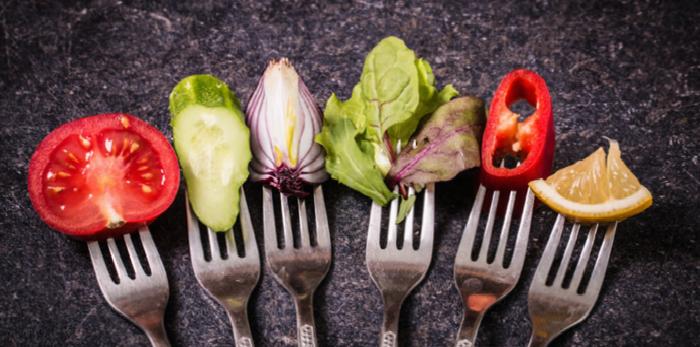- HOW CAN WE STORE FOOD?
According to a study, the antioxidant capacity of green tea, which is left on the shelf for more than six months, decreases by about 32 percent. These anti-oxidants, known as ‘catechins’, have a risk-reducing effect in cancer types. Tea is sensitive to oxygen and light, and like wine, it does not become more adequate over the years.
Buy your tea in airtight packages or cans, making sure it’s absolutely airtight. After use, store your tea in opaque (lightproof) jars and in a cool area. Green tea is more sensitive to heat than black tea. For this reason, if you store your sealed jar in the refrigerator, the leaves will stay fresh and healthy for a longer period of time.
- Tomatoes and artifacts
Studies show that lycopene in canned tomato pastes left in the refrigerator for more than three months (even if the can is unopened) decreases by 50 percent. Researchers working on the subject in Spain found that there was a decrease in the amount of lycopene in ketchup, depending on the time passed. It is very sad that lycopene, which is a very powerful antioxidant for various types of cancer, heart diseases and even strengthening of bones, is lost in this form.
Instead of pre-made tomato sauces, you can prepare your own sauce and reduce the loss. Storing the tomato whole or cut into cubes instead of puree allows you to preserve the lipoken more properly. If ketchup stays in your fridge for a long time, buy smaller lengths. Fresh bottles always contain more lycopene, so be sure to check the date of manufacture.
- Store potatoes in paper bags
According to research in the Netherlands, vitamin C found in potatoes even under optimal storage conditions (dry, cool and dark) after eight months of storage rate decreases by 40 percent.
Therefore, do not store potatoes in the pantry for a long time. If you buy it packaged from the markets, look at the labels and choose the freshest one. If you buy from the market or grocery store, I suggest you choose the smaller ones. It is also a sufficient way to take as much as you will consume in 1-2 weeks instead of taking it in large quantities. In addition, it is more convenient to store potatoes in paper bags instead of storing them in plastic bags, because paper keeps excess light and oxygen out.
- Olive oil heat sensitive
Storage of bottled olive oil for six months reduces its anti-oxidant activity by 40 percent. Do not keep your olive oil bottle near the stove where you are cooking or leave the lid open for a long time against oxygen, light and heat sensitivity. If you do not use olive oil frequently in your meals, I recommend choosing small lengths when purchasing.
- Jams in the refrigerator
According to a study conducted at the University of Arkansas, the anthocyanin content in blackberry jam, which is kept at room temperature for more than two months, decreases by 23 percent. There is a 12 percent loss in flavonoids in strawberry jam, which is stored in a dark place for more than six months. Anthocyanins have anti-inflammatory and anti-oxidant properties. Storing your jams in the refrigerator allows you to enjoy 15 percent more anthocyanins and anti-aging properties before opening them. Take care to choose jams that do not contain sugar. These jams are known to contain more anthocyanins.
- Glass jar for spices
In a study conducted in China, capsaicin in red peppers stored for nine months decreased. In general, spices should be brightly colored when purchased, because those that are ripe and dull in color have lower flavor and nutritional value. If you can find it (rather than bags or plastic), I recommend choosing the ones sold in glass jars, or you can dry the herbs and grind them yourself. Many spices, especially unground black pepper grains, are more effective in terms of health and preserve their flavor for a long time because the grains are not light and airtight because they are not ground. Do not store your spices under direct light or near your stove.
- Protect grains from light with ceramics
50 percent of riboflavin in pasta exposed to light is lost. Compared to a one-on-one study, preserving pasta for longer than three months in low light reduces the riboflavin content by 80 percent. Store grains in opaque (light-proof) ceramic containers to protect them from the effects of heat. It is more convenient to preserve it in a dry warehouse than to store it in the refrigerator.

